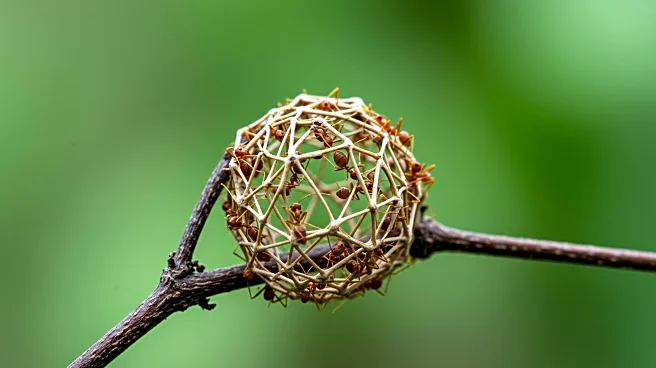What's Happening?
Research conducted by Chris Reid and colleagues at Macquarie University has revealed that weaver ants (Oecophylla smaragdina) exhibit increased power output when working in teams, defying the Ringelmann effect, which suggests that individual productivity decreases in larger groups. The study involved offering paper leaves to weaver ants to measure their pulling force. It was found that individual ants could pull nearly 60 times their body weight, but in groups of 15, each ant could pull over 100 times their body weight. This suggests that weaver ants enhance their individual strength when working collectively.
Why It's Important?
The findings challenge existing theories of teamwork and productivity, providing new insights into the dynamics of group work in the animal kingdom. Understanding how weaver ants achieve such efficiency could inform human teamwork strategies and robotics, where collective action is crucial. The study also highlights the unique adaptations of weaver ants, which could inspire biomimetic designs in engineering and technology.
Beyond the Headlines
The research prompts further investigation into the mechanisms behind the ants' enhanced group strength, such as their attachment force and coordination. It also raises questions about the evolutionary benefits of such teamwork and its implications for other social animals. The study contributes to the broader understanding of cooperation and competition in nature.










